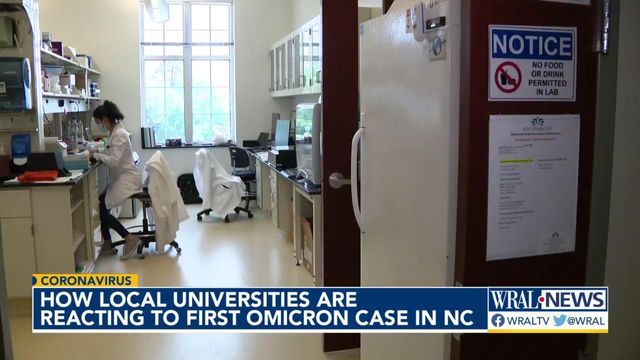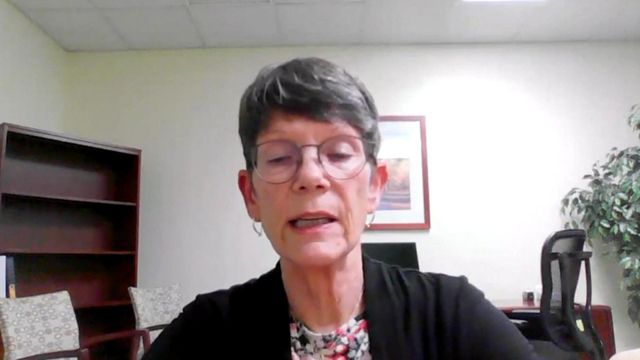UNC-Charlotte lab confirms state's first case of coronavirus' omicron variant
A University of North Carolina at Charlotte student is the first person in the state known to have been infected with the coronavirus' fast-spreading omicron variant, officials said Friday.
Posted — UpdatedThe student, who has since recovered, became infected while traveling out of state over Thanksgiving, said Rick Tankersley, UNC-Charlotte's vice chancellor for research and economic development. DNA testing by a lab on campus confirmed the presence of the omicron variant, he said.
The student, who lives on campus, was isolated after testing positive, and exposure was limited, Tankersley said, noting contact tracing has found no related infections.
Tankersley said the student had been vaccinated previously, so symptoms were "fairly mild," and the student didn't require hospitalization.
Mecklenburg County Public Health Director Gibbie Harris said the vaccine likely helped limit the impact of the virus on the student.
The Centers for Disease Control and Prevention said Friday that 80 percent of omicron variant cases found in the U.S. so far have been in vaccinated individuals and half are in people ages 18 to 35.
Health experts have said the omicron variant, which was first found in southern Africa last month and has been quickly spreading around the globe, has likely been circulating in North Carolina for a while but simply hadn't been detected previously.
Harris echoed that stance on Friday.
"With the travel that we have in and out of our community, I'm not the least bit surprised that we have the first case documented" in North Carolina, she said. "But I'd also be surprised if there's not other cases in our state that just have not been discovered at this point."
UNC-Charlotte has ramped up DNA sequencing of positive virus tests at its lab to better track the progression of the omicron variant, Tankersley said. The process takes five to seven days to complete, he said, which is why officials didn't learn about the variant before Friday after the student tested positive more than a week ago.
"I would assume we're going to see more" omicron cases, Harris said.
She urged people to get vaccinated and get a booster shot and to wear masks to keep the virus variants at bay during the holiday season and throughout the winter.
"This virus is not going away," she said. "What it does, how it mutates and how we manage it are the variables that we have to deal with. The one thing we have control over is how we deal with it."
Related Topics
• Credits
Copyright 2024 by Capitol Broadcasting Company. All rights reserved. This material may not be published, broadcast, rewritten or redistributed.






